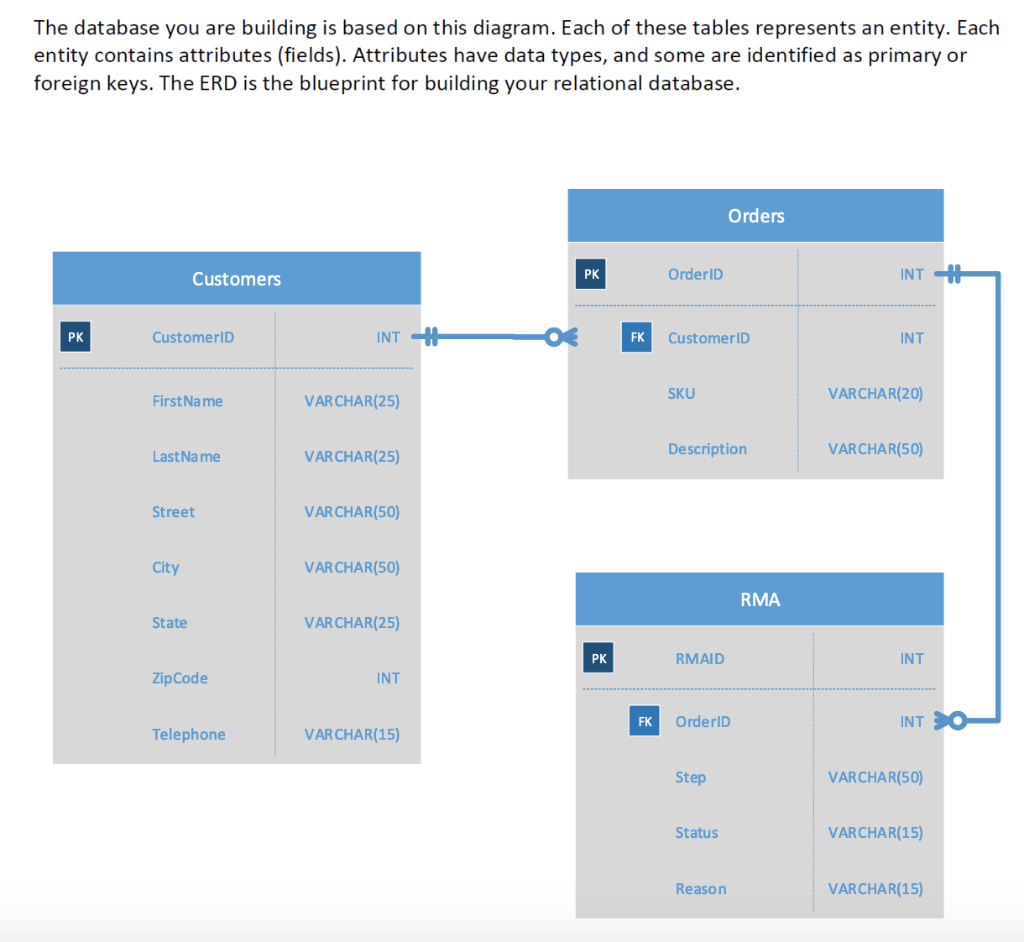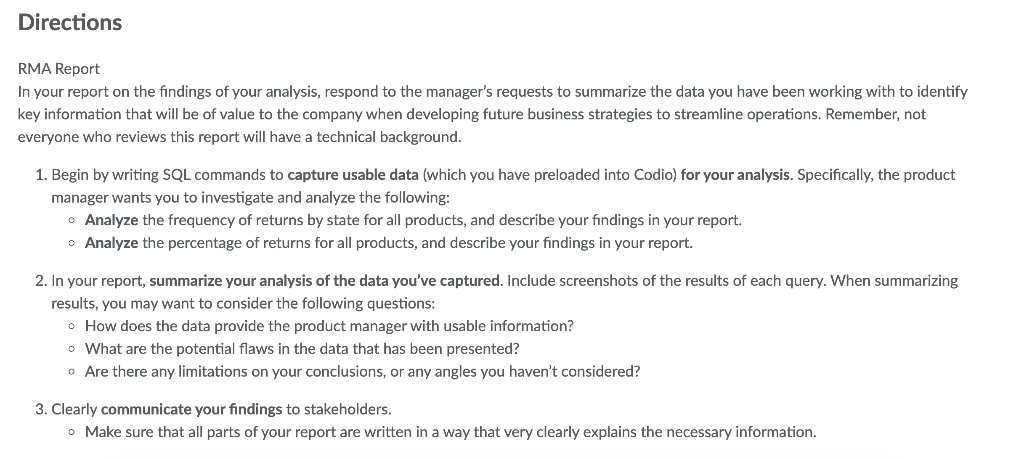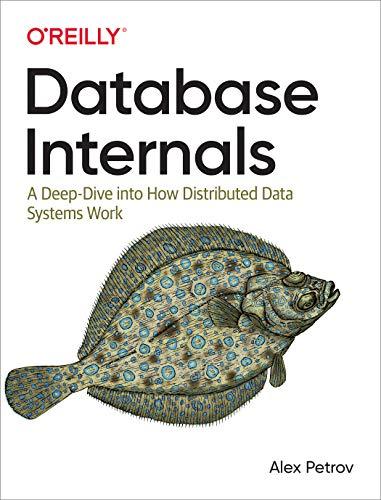

The database you are building is based on this diagram. Each of these tables represents an entity. Each entity contains attributes (fields). Attributes have data types, and some are identified as primary or foreign keys. The ERD is the blueprint for building your relational database. Orders Customers OrderID INT CustomerID INT O FK Customerid SKU VARCHAR(20) First Name VARCHAR(25) Description VARCHAR(25) LastName VARCHAR(50) Street VARCHAR(50) City VARCHAR(50) RMA State VARCHAR(25) RMAID Zip Code INT OrderID INT Telephone VARCHAR(15) Step VARCHAR(50) Status VARCHAR(15) Reason VARCHAR(15) Directions RMA Report In your report on the findings of your analysis, respond to the manager's requests to summarize the data you have been working with to identify key information that will be of value to the company when developing future business strategies to streamline operations. Remember, not everyone who reviews this report will have a technical background. 1. Begin by writing SQL commands to capture usable data (which you have preloaded into Codio) for your analysis. Specifically, the product manager wants you to investigate and analyze the following: o Analyze the frequency of returns by state for all products, and describe your findings in your report. o Analyze the percentage of returns for all products, and describe your findings in your report. 2. In your report, summarize your analysis of the data you've captured. Include screenshots of the results of each query. When summarizing results, you may want to consider the following questions: o How does the data provide the product manager with usable information? o What are the potential flaws in the data that has been presented? Are there any limitations on your conclusions, or any angles you haven't considered? 3. Clearly communicate your findings to stakeholders. o Make sure that all parts of your report are written in a way that very clearly explains the necessary information. The database you are building is based on this diagram. Each of these tables represents an entity. Each entity contains attributes (fields). Attributes have data types, and some are identified as primary or foreign keys. The ERD is the blueprint for building your relational database. Orders Customers OrderID INT CustomerID INT O FK Customerid SKU VARCHAR(20) First Name VARCHAR(25) Description VARCHAR(25) LastName VARCHAR(50) Street VARCHAR(50) City VARCHAR(50) RMA State VARCHAR(25) RMAID Zip Code INT OrderID INT Telephone VARCHAR(15) Step VARCHAR(50) Status VARCHAR(15) Reason VARCHAR(15) Directions RMA Report In your report on the findings of your analysis, respond to the manager's requests to summarize the data you have been working with to identify key information that will be of value to the company when developing future business strategies to streamline operations. Remember, not everyone who reviews this report will have a technical background. 1. Begin by writing SQL commands to capture usable data (which you have preloaded into Codio) for your analysis. Specifically, the product manager wants you to investigate and analyze the following: o Analyze the frequency of returns by state for all products, and describe your findings in your report. o Analyze the percentage of returns for all products, and describe your findings in your report. 2. In your report, summarize your analysis of the data you've captured. Include screenshots of the results of each query. When summarizing results, you may want to consider the following questions: o How does the data provide the product manager with usable information? o What are the potential flaws in the data that has been presented? Are there any limitations on your conclusions, or any angles you haven't considered? 3. Clearly communicate your findings to stakeholders. o Make sure that all parts of your report are written in a way that very clearly explains the necessary information








